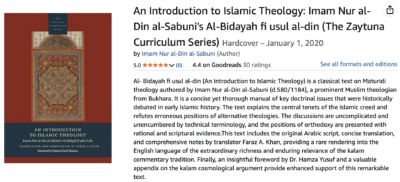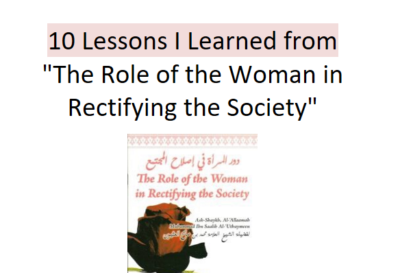Some Prominent writers and their books of Abassid Period
1. Ibn al-Muqaffa‘ (106–142 AH / 724–759 CE)
Abdullah ibn al-Muqaffa‘ was a Persian-born writer and translator, regarded as one of the leading literary figures of early Islamic literature. He was the first to translate books on logic into Arabic. Ibn al-Muqaffa‘ was famous for his refined prose, elegant style, and melodious language. Some of his notable prose works include:
- Kalila wa Dimna
- Al-Adab al-Kabir (The Great Book of Manners)
- Al-Adab al-Saghir (The Small Book of Manners)
- Al-Durra al-Yatima (The Unique Pearl)
2. Al-Asma‘i (123–216 AH / 741–831 CE)
Abd al-Malik ibn Qurayb al-Bahili, known as al-Asma‘i, was a renowned scholar, memorizer of poetry, and authority on Arabic literature. He was an expert in language, rare expressions, folklore, and literary anecdotes. His notable prose works include:
- Al-Asma‘iyat
- Al-Addad
- Khalaq al-Insan (The Creation of Man)
- Al-Mutaradif (Synonyms)
3. Sahl ibn Harun (d. 215 AH / 830 CE)
Sahl ibn Harun was a prominent translator, philosopher, eloquent writer, gifted poet, skilled orator, and wise Persian scholar. His prose works include:
- Diwan al-Rasa’il (Collection of Letters)
- Al-Nimr wa al-Thi‘lab (The Tiger and the Fox)
- Tha‘la wa ‘Afra, in the style of Kalila wa Dimna
- Al-Ikhwan (The Brothers)
4. Ibrahim al-Suli (176–243 AH / 792–857 CE)
Ibrahim al-Suli was a skilled, eloquent, and accomplished writer whose speech became exemplary. He served as a court secretary under the Abbasid caliphs and was widely admired for his polished prose and literary influence.
5. Al-Musta‘sim, Al-Wathiq, and Al-Mutawakkil
These Abbasid caliphs are noted in literature for their patronage of writers. Among the prose works from their era:
- Kitab al-Dawla (Book of the State)
- Diwan al-Rasa’il (Collection of Letters)
- Kitab al-‘Itr (Book of Perfume)
- Kitab al-Tabikh (Book of Cuisine)
6. Al-Jahiz (156–255 AH / 773–869 CE)
Abu Uthman ‘Amr ibn Bahr al-Basri, known as Al-Jahiz, was a versatile literary figure and one of the leading authorities of Arabic literature. His scholarship spanned rhetoric, poetry, Arabic grammar, Qur’anic exegesis, history, and social observation, all expressed with eloquence. Notable prose works include:
- Al-Bayan wa al-Tabyin (Rhetoric and Exposition)
- Al-Bukhala’ (The Misers)
- Al-Hayawan (The Book of Animals)
- Al-Mahasn wa al-Addad (Beauties and Opposites)
7. Ibn Qutaybah (213–276 AH / 828–899 CE)
Abu Muhammad Abdullah ibn Muslim ibn Qutaybah al-Dinawari was a literary critic, linguist, scholar, and jurist. His notable prose works include:
- Adab al-Katib (The Writer’s Etiquette)
- ‘Uyun al-Akhbar (The Best of Historical Accounts)
- Fadl al-‘Arab (The Virtue of the Arabs)
- Kitab al-Ma‘arif (Book of Knowledge)
8. Abu al-Faraj al-Isfahani (284–356 AH / 897–967 CE)
Ali ibn al-Husayn al-Marwani, known as Abu al-Faraj al-Isfahani, was an Arab scholar, historian, and literary figure, renowned for his expertise in history, genealogy, biographies, language, and military campaigns. His major prose works include:
- Kitab al-Aghani (Book of Songs)
- Ayyam al-‘Arab (The Days of the Arabs)
- Al-Ta‘dil wa al-Insaf (Correction and Justice)
- Adab al-Ghuraba’ (Etiquette of Strangers)
9. Ibn al-‘Amid (297–360 AH / 892–970 CE)
Abu al-Fadl Muhammad ibn al-Husayn al-Katib, known as Ibn al-‘Amid and sometimes called the “Second Al-Jahiz,” was a master of prose and official correspondence. He excelled in literary style and rhetoric, earning the praise: “Writing began with Abd al-Hamid and culminated with Ibn al-‘Amid.” His notable works include:
- Diwan al-Rasa’il (Collection of Letters)
- Al-Madhhab fi al-Balaghat (Method in Eloquence)
- Diwan fi al-Lugha (Collection on Language)
- Al-Khalq wa al-Khuluq (Creation and Morals)
10. Al-Sahib ibn ‘Ubad (326–385 AH / 938–995 CE)
Isma‘il ibn ‘Ubad was a prominent minister and literary figure, admired for his knowledge, judgment, and administrative skill. He earned the epithet Al-Sahib for accompanying and assisting the great scribe Al-Fadl ibn al-‘Amid. His prose works include:
- Al-Muheet (The Comprehensive)
- Al-Kafi fi al-Rasa’il (Sufficiency in Letters)
- Al-Imama (Leadership)
- Al-Wuzara’ (The Ministers)
11. Al-Hamadhani (358–395 AH / 969–1007 CE)
Ahmad ibn al-Husayn, known as Badi‘ al-Zaman al-Hamadhani, was the author of the famous Maqamat. He was a scholar and writer who mastered both Arabic and Persian cultures, excelling as a linguist, literary figure, poet, and transmitter of hadith. His notable prose works include:
- Maqamat al-Hamadhani (The Assemblies of Al-Hamadhani)
- Majmu‘at Rasa’il (Collection of Letters)
12. Al-Hariri (446–516 AH / 1054–1122 CE)
Abu Muhammad al-Qasim ibn Ali al-Hariri al-Basri was a brilliant scholar and master of eloquence, renowned for his linguistic and rhetorical skills. He is famously known as the author of the Maqamat al-Hariri and was a leading literary figure of his time. His notable prose works include:
- Maqamat al-Hariri (The Assemblies of Al-Hariri)
- Durrah al-Ghawwas fi Awham al-Khawas (The Pearl of the Diver in the Illusions of the Elite)
- Malhat al-I‘rab fi al-Nahw (The Exquisite Guide to Grammar)
- Diwan al-Rasa’il (Collection of Letters)
13. Al-Qadi al-Fadil (526–596 AH / 1132–1200 CE)
Abd al-Rahim al-Baysani, known as Al-Qadi al-Fadil, was a distinguished scholar, writer, and master of rhetoric. He served as a secretary, minister, and advisor to Salah al-Din al-Ayyubi due to his eloquence and literary skill. His notable prose works include:
- Tarsul al-Qadi al-Fadil (Letters of Al-Qadi al-Fadil)
- Rasa’il Insha’ al-Qadi al-Fadil (Compositions of Al-Qadi al-Fadil)
- Al-Durr al-Nazim fi Tarsul Abd al-Rahim (The Organized Pearl in the Letters of Abd al-Rahim)
More books
Discover more from Islam Hashtag
Subscribe to get the latest posts sent to your email.






